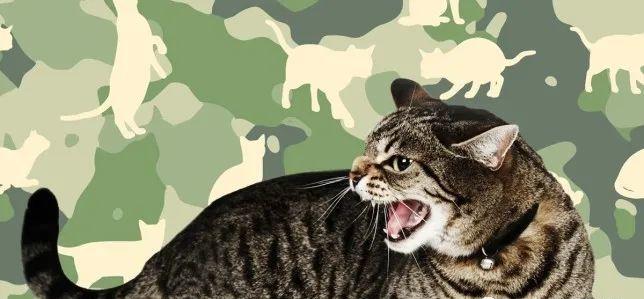
As a shoveler, do you know exactly what your cat is thinking? The prevailing view is that cat owners are more difficult and ruthless animals to serve, and even if they are interested in you, they will still pick and choose. So, it's hard to guess what's going on with the cat.
Similar to humans, pet cats also exhibit significant individual differences in a range of traits. These personality or temperament differences can affect the quality of the cat's relationship with its owner, which in turn can affect the quality of the cat's life, for example, a cat with a poor personality is likely to be abandoned.
Therefore, trying to understand the personality of cats may improve the relationship between cats with bad personalities and their owners, lest they be forced to live on the streets.
In a recent new study, researchers from John Moores University and the University of Liverpool in the UK developed the first questionnaire to measure cat personality that could give you an idea of how psychotic the "master" was. The ultimate goal of the study is to give us a better understanding of cats and thus improve the cat's relationship with its owner.
A previous largest study of owners evaluating the personality of domestic cats proposed five major factors that make up cat personality, namely kinship, dominance, extroversion, impulsivity and neuroticism. The researchers believe that these may be related to the degree of psychosis in the cat. In the non-human animal literature, callousness and lack of prosocial behavior are conceptually associated with psychosis and antisocial disorders.
The domestic cat is largely a solitary species that is often considered psychotic in popular culture, such as selfishness, ruthlessness, and manipulation. In humans, psychosis also often manifests itself as a lack of empathy and a tendency to manipulate others, although some psychopaths appear normal or even attractive on the surface.
From an evolutionary perspective, psychosis is a product of evolutionary pressures, through the complex interaction of environmental and genetic factors leading some individuals to pursue manipulative and predatory life strategies.
However, traits associated with psychosis may be detrimental to the pet cat's relationship with its owner.
For the study, the researchers developed a cat psychotic ternary model questionnaire (CAT-Tri+) to assess overall psychopathic tendencies. Three yuan is not three dollars, but refers to the three qualities of the cat's personality: guts, meanness and inhibition.
Inhibition is a phenomenon in which the ability to inhibit is temporarily disappeared by new stimuli during the period of action that causes the cerebral cortex to inhibit. Therefore, behavior changes can also come more suddenly.
The questionnaire surveyed about the cat's adventurous spirit during exploration, its response to danger, its reaction to other cats, whether it needed sustained stimulation and the extent to which it complied with house rules.
The researchers also looked at related behaviors including sudden mood changes, attacks on strangers and reactions to being pampered. Under each question, you can mark your "master" on a scale from "can't describe my cat" to "describe my cat very well."
Other factors such as measuring "unfriendly to humans" and "unfriendly to pets" were also included in the questionnaire to help understand the relationship between cats and owners.
After completing a total of 46 questions, the cat's CAT-Tri+ psychosis degree score can be calculated.
The final findings in the study came after studying the relationship between 2,042 shovelers and their cats, and the researchers also teased out some patterns from them.
For example, inhibition and unfriendliness to other pets indicate a higher quality of relationship between the cat and the owner, while boldness and meanness indicate a lower quality of the cat's relationship with the owner.
Cats with higher guts scale scores may reap the benefits of spending more time scratching posts or climbing obstacles, as the CAT-Tri+ scale indicates that daring cats like to do that; while those that are unwelcome may be abandoned or left in shelters (where they may be euthanized).
Lead author Rebecca Evans, a psychologist at the University of Liverpool, said: "Our cats and their personality differences drove us to start this study. Personally, I'm also interested in how cat psychopathy affects the relationship between cats and their owners. My cat Gumball scored relatively high on the inhibition lift scale, which means it can make a straightforward sound, seek closeness and excitement. ”
Evans adds: "It's likely that all cats have a little bit of psychosis, as psychosis used to help their ancestors access resources: such as food, territory and mating opportunities. ”。
The researchers hope that such psychological studies could help identify undesirable behavior in cats so that shovelers or veterinarians can train them accordingly or adjust the environment to improve the cat's relationship with their owners.
Links to papers
The reproduced content represents the views of the author only
Does not represent the position of the Institute of Physics, Chinese Academy of Sciences
Source: China Biotechnology Network
Edit: Garrett